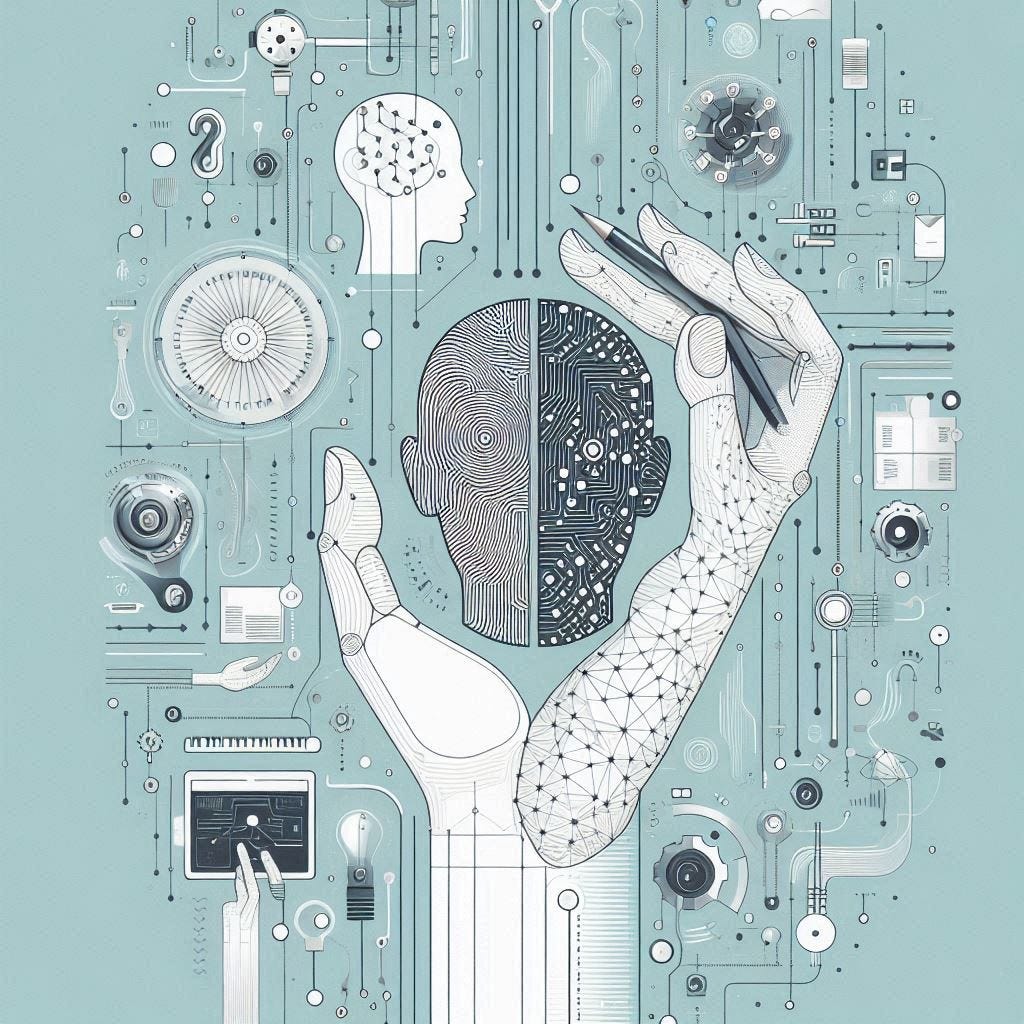We’ve spent years talking about automation. About machines doing what people used to do. About jobs disappearing and industries changing. About having machines perform mind-numbing tasks. But maybe it’s time to shift the conversation.
Because AI isn’t just about automation anymore, it’s about augmentation.
That’s a big difference.
Automation replaces. Augmentation enhances. And if we’re serious about building a future that works—for people, not just machines—we need to rethink what human value really means.
The Old Story Is Wearing Thin
For a long time, the dominant narrative has been simple: AI will take over. It’ll do the work faster, cheaper, and without needing a lunch break. That story has fueled anxiety, headlines, and a lot of hand-wringing.
But it’s not the full picture.
Andrew Ng, founder of Google Brain, said:
“AI is like electricity. Just as electricity transformed every major industry a century ago, AI is now poised to do the same.”
That’s the shift we’re living through. AI isn’t here to push us out—it’s here to push us forward. It can help us think better, move faster, and solve problems we couldn’t tackle alone.
But only if we let it.
Real-World Examples
Look at healthcare. AI is helping doctors analyze scans, predict outcomes, and personalize treatments. But it’s not making diagnoses on its own. It’s working alongside people who understand context, emotion, and ethics.
In customer service, AI handles routine questions so humans can focus on complex issues. In finance, it flags anomalies while analysts decide what they mean. In education, it supports personalized learning—but teachers still guide the journey.
These aren’t stories of replacement. They’re stories of partnership.
What Leaders Need to Understand
If you’re leading a team, a company, or even just a project, this shift matters. It’s not enough to adopt new tools. You have to help people use them well.
That means training. That means trust. That means making space for experimentation and failure.
Fei-Fei Li, a leading voice in AI ethics and innovation, said:
“As a technologist, I see how AI and the fourth industrial revolution will impact every aspect of people’s lives.”
That’s not just a prediction—it’s a reality. The future belongs to those who are willing to learn, adapt, and rethink how they work. And it’s up to leaders to make that possible.
Rethinking Human Value
So what does it mean to be valuable in a world where machines can do so much?
It means being able to judge, create, empathize, and connect. It means asking better questions, not just finding faster answers. It means seeing the big picture when the data only shows the details.
John Hagel, a futurist and strategist, said:
“If we do it right, we might actually be able to evolve a form of work that taps into our uniquely human capabilities and restores our humanity.”
That’s the opportunity. Not just to be more efficient—but to be more imaginative. More thoughtful. More human.
Strategies for Adapting
If you’re wondering how to move forward, here are a few practical steps:
Start with mindset. See AI as a partner, not a threat.
Invest in learning. Make time for your team to explore new tools.
Focus on strengths. Let machines handle the routine so people can focus on what they do best.
Encourage collaboration. AI works best when it’s part of a team, not a solo act.
Stay curious. The tech will keep changing. So should your approach.
This isn’t about mastering every tool. It’s about staying open, engaged, and willing to evolve.
The Bigger Picture
This shift from automation to augmentation isn’t just technical. It’s cultural. It’s about how we see ourselves, our work, and our value.
It asks us to stop measuring ourselves by output alone. To stop assuming that faster is always better. To stop fearing change—and start shaping it.
And it reminds us that technology, no matter how advanced, still needs people. Not just to operate it, but to create it, guide it. To question it. To make sure it serves something bigger than itself.
Let’s Keep the Conversation Going
As we navigate this evolving landscape, it’s essential to stay informed, reflective, and collaborative. Share your thoughts and join the ongoing conversation at https://thebillholt.substack.com.
Thanks for reading
.



Hey Bill,
Question - If human value is increasingly measured by creativity, empathy, and judgment, in this "New Age" of Artificial Intelligence in the professional workforce, how should organizations redesign work and success metrics to reflect those desired qualities in an employee instead of just efficiency and output, as these KPI's would seemingly be deemed outdated?